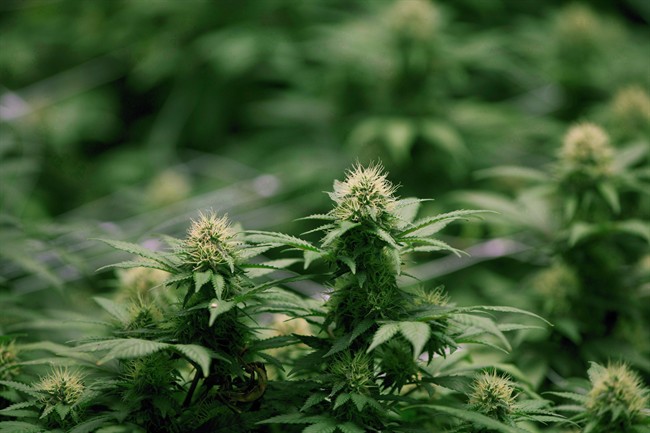Learn to grow weed and get a university degree — sounds like the premise for a new TV show, but it’s actually quite the reality at McGill University in Montreal.

The faculty of agricultural and environmental sciences is offering people with a background in plant sciences the unique opportunity to learn how to cultivate marijuana as part of its academic programming.
READ MORE: Doctors should think twice before prescribing medical marijuana
“You have to have a good idea of plant biology in order to even understand what the course is about, so we won’t take everybody,” Anja Geitmann, professor and dean of the faculty, told Global News.
“You really need professional training. This isn’t for your mum and pop who want to grow their five plants on the balcony and want to do so better.”
The faculty is located at the Macdonald campus in the West Island and Geitmann explains such a cannabis cultivating program is needed as the medical marijuana industry grows.
“There are companies setting up greenhouses the size of soccer fields in several areas in Ontario and Quebec,” she told Global News.
“We, as a faculty of agriculture, said, ‘Well, somebody has to train the people, certainly, for the high-quality jobs and if it’s not us, it’s going to be less qualified people.”
READ MORE: Doctors alarmed over lack of medical pot research, highlight evidence suggesting harm
She pointed out the university already has a base in agronomy and plant sciences and tens of thousands of people could be employed in the coming years to work as master-growers, post-harvesters, quality controllers and for extraction.
WATCH BELOW: Legalizing marijuana
As a first step, the school will be offering two one-day workshops in May to teach people about both the horticultural side (growing, harvesting, post-harvesting) and the chemical side (technology required for extraction and quality insurance, such as the detection of heavy metals and pesticides.)

Get weekly health news
“The medicinal side needs to have that quality management,” said Geitmann.
“You cannot supply to a pharmaceutical industry, or a doctor cannot prescribe cannabis, unless they know exactly what is in the product (and they) can ensure there’s no pesticide residuals in the product.”
READ MORE: Medical marijuana risks may outweigh benefits for children, Canadian pediatricians say
There are plans for an academic program starting in 2019, which could be a one- to two-term professional certificate or Bachelor’s diploma.
LISTEN BELOW: Global’s Rachel Lau talks McGill’s marijuana program with Gord Gillies
The professor is quick to point out that the course, in collaboration with industry partners, is specifically geared toward people who want to work in the medical cannabis industry, as there is a lot of emphasis on product standards and quality management.
“We are not targetting people for the recreational side and we’re certainly not targetting people who want to do the homegrown stuff, which is not going to be possible in Quebec anyway,” she said.
WATCH BELOW: The realities of growing marijuana
When it comes to curbing the “high” for medical use and creating specific strains to target different ailments, Geitmann says there’s still a long way to go.
READ MORE: Marijuana market ‘big enough for everyone,’ Hamilton medical dispensary owner says
“The reason we know so little about this in a scientific sense is, of course, because the plant was prohibited,” she said.
“It was extremely difficult for researchers to get licences to grow them.”
The hope is to increase cannabis research to ensure that proper strains are being prescribed to people in need.
READ MORE: Shoppers Drug Mart signs medical marijuana supply deal with Aurora Cannabis
“Some have effects on the human mind or body, some have a calming effect, or help insomnia,” she said.










Comments